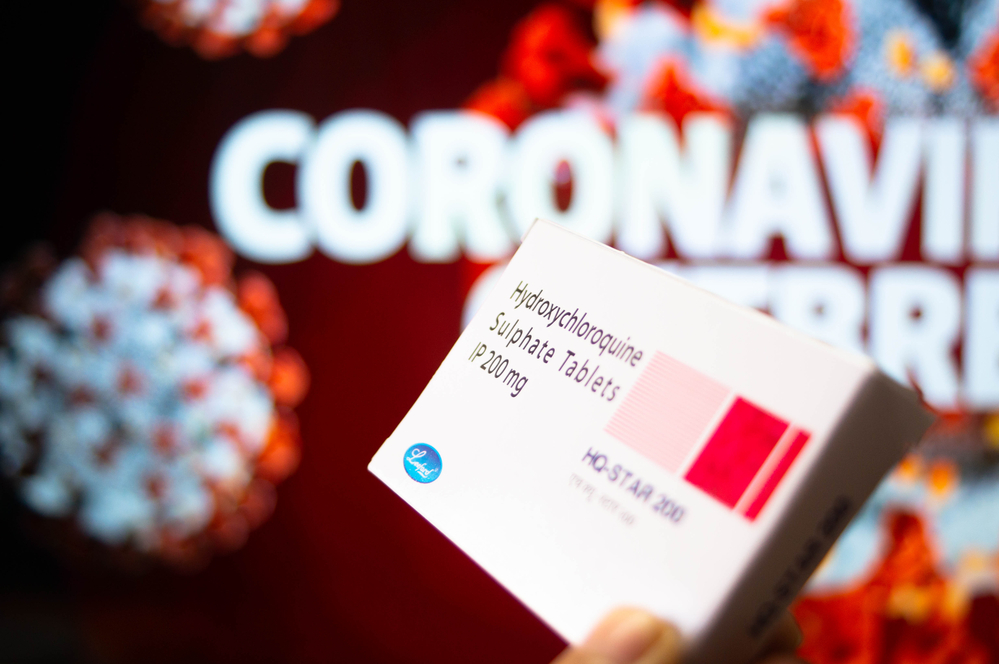Ever since the United States came out in support of waiving intellectual property protections for the COVID vaccines, we have seen renewed interest in the ethics of intellectual property over life-saving medication.
Currently, member nations of the World Trade Organization are bound by the TRIPS agreement to respect and enforce international medical patents. If a U.S. company develops a new drug and gets a patent for that drug approved by the United States, then other nations are bound by international law to also respect intellectual property rights to that invention.
There are numerous flexibilities built into the TRIPS agreement to try and ensure international access to medicine. For example, countries can issue compulsory licenses for intellectual property. These licenses allow a country to legally compel a company to make its patent available to domestic producers for a fee set by the government. For example, Canada could, under the TRIPS agreement, issue a compulsory license for the Johnson & Johnson vaccine, and force Johnson & Johnson to provide their patent to Canadian vaccine producers.
However, many have argued these flexibilities are insufficient to deal with the current pandemic and so have called for an international waiver to TRIPS protections for COVID-related medications. Such a waiver would allow anyone to produce COVID vaccines or medications without violating international property law.
There are legitimate worries about such a waiver. Critics argue that current production bottlenecks are not the result of intellectual property protection, that there are better and safer ways to increase vaccine production, and that such a waiver creates a precedent that could discourage future research and development.
This back and forth has been covered in a previous Prindle post, and so I won’t tackle the ethics of a COVID waiver here. Rather, I want to take a step back and look more broadly at intellectual property rights over life-saving medications. In particular, I want to consider such property rights in light of the ethical ‘right of necessity.’
Introducing The Right of Necessity
Most agree that it is permissible for a starving man to ‘steal’ a loaf of bread in order to save his own life. However, there are two very different explanations that one can give of that permissibility.
On the one hand, you might think that while taking the bread is indeed an act of theft, that act of theft can be justified since it is necessary for the man to save his own life. On this view, the starving man violates the property rights of the baker, but such right violations are justified in order to save a life.
On the other hand, you might think that the man is justified in taking the bread because, to use Aquinas’s language, it is not even “properly speaking theft.” According to this view, it is not that you are justified in violating someone’s property rights. Rather, the other person does not have a property right over the bread in the first place. If the baker has a surplus and there are others in true need, then the baker does not have a property right against them. Philosophers who take this second view, including Thomas Aquinas, Hugo Grotius, Samuel Puffendorf, and Alejandra Mancilla, believe in a right of necessity, a right to that which is necessary to survive.
There are many different arguments that one can give for a right of necessity. One argument, inspired by Puffendorf, is that you cannot justify to everyone a system of property that allows some to starve. What justification could you give to the starving man for why they should consent to, or accept, a system of property in which they die? Being dead, they will not receive any benefits of the system.
Another argument, this one inspired by Aquinas, is that we create systems of private property so that everyone can more efficiently acquire those goods necessary for their well-being. Nature originally belongs equally to everyone, and we divide it up into private property because it enables everyone to secure their well-being more easily. However, since private property is created to enable everyone to more easily secure that natural right, private property cannot contradict the natural right of people to that which they need to survive.
The Right of Necessity and Intellectual Property
If there is a right of necessity, what implication would that have for intellectual property rights over life-saving medication?
Life-saving medication, almost by definition, is often necessary for survival. Thus, if the right to necessity justifies stealing bread from those who have extra, so too it would seem to justify stealing a vial of unaffordable medication. Similarly, if I can steal an unaffordable vial of life-saving medication to save a life, then it would be strange to think I cannot violate an international patent to create that life-saving vial.
It seems, then, that if we accept the old doctrine that there exists a right of necessity, it would have profound implications for the justice of intellectual property law. Nations, according to such reasoning, possess a natural right to break patents if it is necessary to produce life-saving medication for those who could otherwise not afford them.
(The affordability qualification is an important one. Just as it would be theft for me, who can afford to buy food, to steal a loaf of bread. So too it would be unjust to violate international patents for patients who can otherwise afford to buy the medication.)
But even with the affordability qualification in place, there is currently a huge problem of access to life-saving medications by the global poor. As such, the right of necessity suggests a standing right to break many international medical patents.
A Looming Market Problem
There is a problem, however, with using the right of necessity to break patents on life-saving medications. If we can violate patent rights for life-saving medications, but not for relatively unimportant patents, it creates a systematic market incentive for firms to invest in relatively trivial research.
Let’s first consider this worry in the context of ordinary property. A starving man can take bread if he cannot afford to pay for it. But I cannot take a Rolex just because I cannot afford to pay for it. While the starving man needs bread, I do not need a watch, and so the right of necessity only applies in the starving man’s case.
But this raises a worry. If we, as a society, recognized a right to steal necessities, then that would seem to incentivize people to only produce luxuries. If you bake bread, then your wares can sometimes be taken without payment. But if you make luxury watches, then your property rights are totally safe. So why become a baker?
We can extend the worry to the pharmaceutical case. If a drug company invents a new life-saving medication, then, the company’s intellectual property rights will be systematically limited. There will be a standing right for others to violate their intellectual property protections if it is necessary to save lives. In contrast, if a drug company invents a non-life-saving medication, say a new form of Viagra, then there are no similar limitations on intellectual property protections. Since no one needs Viagra, companies can be secure in their property rights.
But the whole point of IP protections is to encourage innovation. We give companies patents in order to encourage them to invest in research and development of new, useful goods. If the patent protections on life-saving medications are systematically weaker, then it creates a perverse incentive for companies to divert R&D funding towards relatively unimportant medical research.
A Possible Solution
If we accept the right of necessity, it suggests a broad moral power to redistribute goods to those in need. However, we’ve also seen that the straightforward application of that moral power could have harmful long-term consequences.
One possibility is just that there is a conflict between justice and market efficiency. And indeed, I think defenders of the right of necessity must admit that it would justify inefficient market behavior. A starving man can steal bread, even if that creates a market disincentive to go into baking, which in turn drives up the price of bread even more.
However, I think there is another way we might try and reconcile these two.
The right of necessity is often illustrated with the permissibility of a starving man stealing bread. But, in principle, there is no reason why what’s taken must be directly related to the need. Suppose that the man was unable to steal a loaf of bread but could steal an expensive watch. Just as the man has a right to steal bread, so too he seems to have a right to steal the watch if it is required to be able to buy a loaf of bread.
This suggests a possible solution to the problem we have identified. While the right of necessity would justify a country in breaking international patents over life-saving medications. It would also, for instance, justify them in breaking other patents in order to raise the funds to purchase life-saving medications.
If this is right, then as long as there are any who remain in desperate and undeserved need, it provides a wide-ranging potential justification for breaking apparent property rights. Put another way, certain types of injustice, such as life-threatening poverty, might be so unjust as to render most of the property claims of our entire international system of justice merely provisional.


